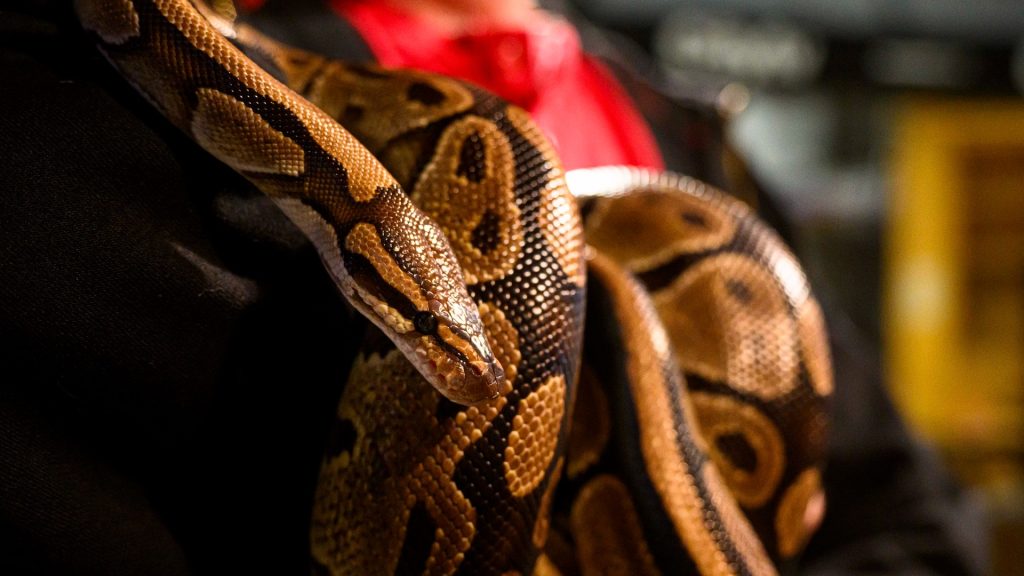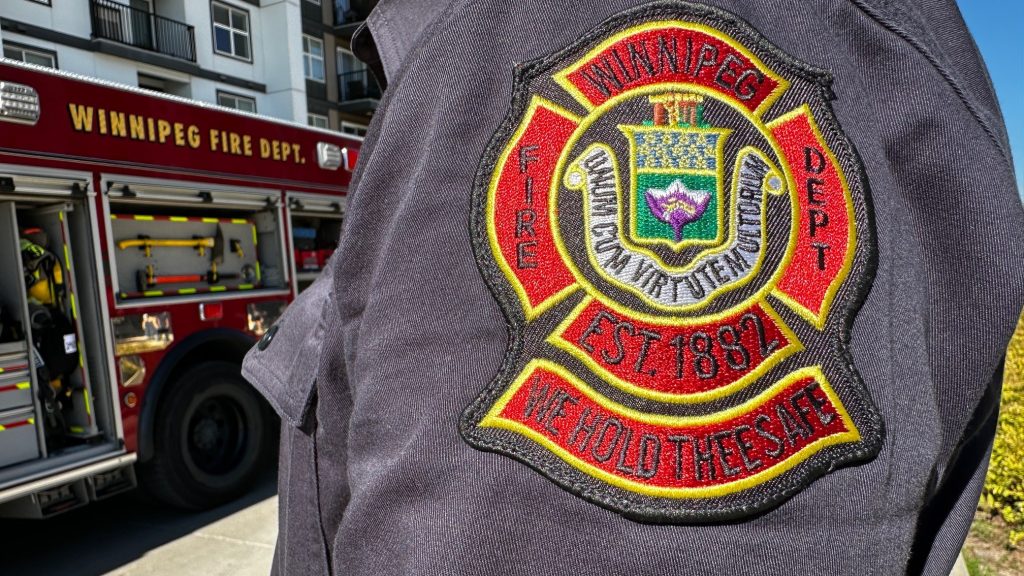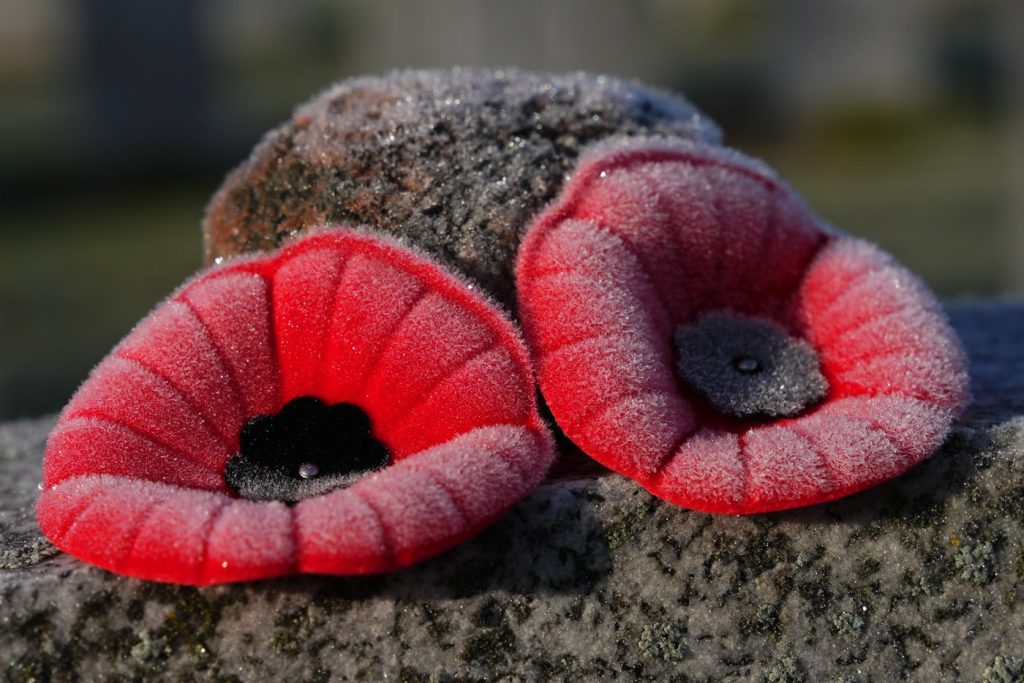Surviving vs Thriving: calls for better education and care for Winnipeg’s reptiles
Posted September 18, 2024 4:14 pm.
Last Updated September 18, 2024 9:01 pm.
A Winnipeg rescue for reptiles that’s been on an intake freeze since shortly after its inception in 2022 is hoping to see less animals coming through its doors. Annette Lyss (aka Queen Boberta), who runs Boberta’s Dragons Reptile Rescue, said too many reptiles are being surrendered to her, mainly because many reptile owners people do not know how to properly care for them.
Lyss spoke with CityNews early Wednesday morning, bringing some bearded dragons and snakes with her to the studio. The first creature she introduced was a bearded dragon named Gates McDragon, who for the first year of his life did not have proper lighting resulting in permanent neurological damage.
Lyss said there was very little calcium in his system that veterinarians could not see his bones and the little dragon could not digest his food. Gates is now a permanent rescue with Lyss.
“Because these animals can hide being sick, they can survive a lot of really horrible conditions. But they’re not thriving,” she explained.

Lyss said Gates was the reason Boberta’s Dragons began months earlier than anticipated — because Gates needed urgent help and Lyss needed resources to get him well.
Unfortunately, Gates and other reptiles like him are not an uncommon case. Lyss said many well-meaning owners are being given outdated information, including right at purchase from big chain pet stores. Many ‘starter kits’ for reptiles and small mammals are not nearly as big as needed and often have improper lighting and in some cases, even the wrong food, said Lyss.
“When you are getting (reptiles) from pet stores, they don’t always know what is the best care for them,” she said.
Among other concerns, Lyss also cited conditions for breeding and import for the animals through anyone who isn’t a reputable breeder.
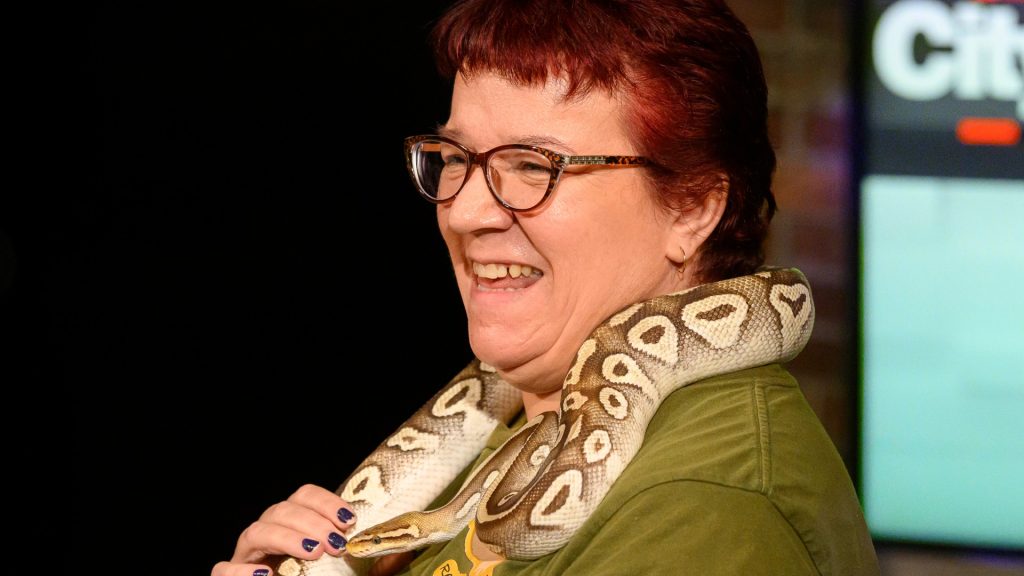
“There is sort of a misconception that reptiles are an easy first pet. They’re easy to care for. But unfortunately they actually take a lot of knowledge, equipment, research, effort to care for,” said Dr. Toni Moritz with the Whyte Ridge Veterinary Hospital, who works with Lyss and the animals in her rescue.
“We do all of her intake, exams for any of the new rescues that she gets and then any continuing care that they need.”
Explaining, “Reptiles are a little bit different than our cats and our dogs. Their metabolisms are different. Physiologically, the way that their bodies work is very different so things take a long time. So they gradually get sicker, sicker, sicker, owners don’t notice, people don’t notice. By the time they’re actually showing signs of illness, most likely something’s been going on for quite a while.”
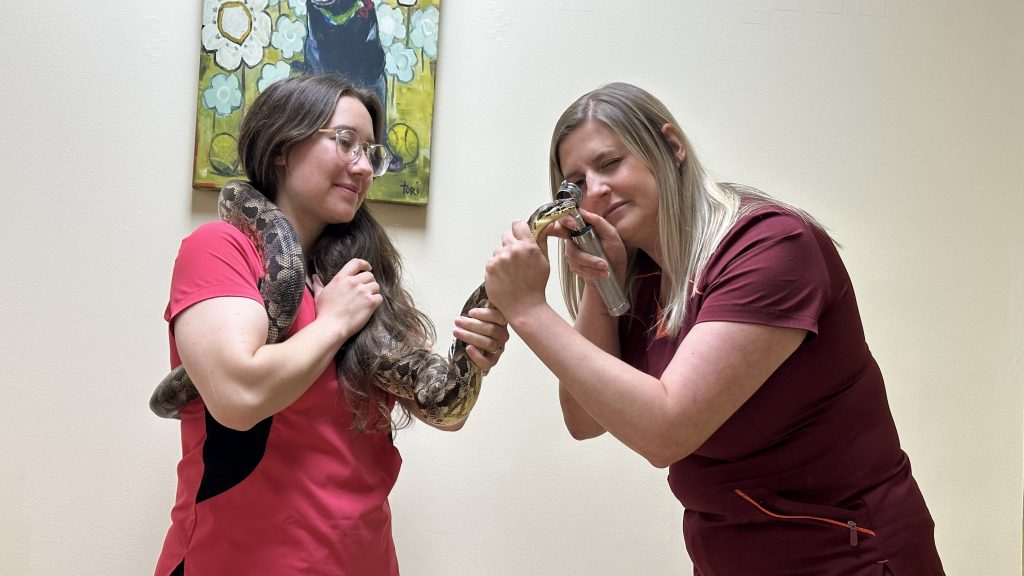
Dr. Moritz said it’s important for first-time reptile owners to do thorough research on care and to make sure to go to trusted sources for advice — for example, rescues or breeders. But most important is making sure reptiles have regular check-ups, just like other animals. Part of that is having a qualified veterinarian lined up for care before adopting.
“There’s definitely a few clinics in the city that do the different species … There’s definitely not as many as available as [there are for cats and dogs],” said Dr. Moritz.
She said proper husbandry — habitat and equipment for reptiles— is crucial for as inadequate enclosures leads to serious medical issues and shorter lifespans for animals, with the worst cases leaving reptiles unable to last the year when life expectancy can be well into the double digits for certain species. Moritz said her oldest reptile client was 65-years-old before it died of old age, proving when reptiles are kept in ideal environments they can be long-time family members.

Lyss said many of the reptiles now in her care had not been seen by veterinarians like Dr. Moritz before going through Boberta’s Dragons intake process.
“People either don’t realize they should go to the vet or they don’t know there is a vet,” said Lyss.
But there is an easy solution, said Lyss: adopt from a qualified breeder who knows what they’re talking about.
“Please do not buy any pet from a large pet store or a large chain pet store.”
